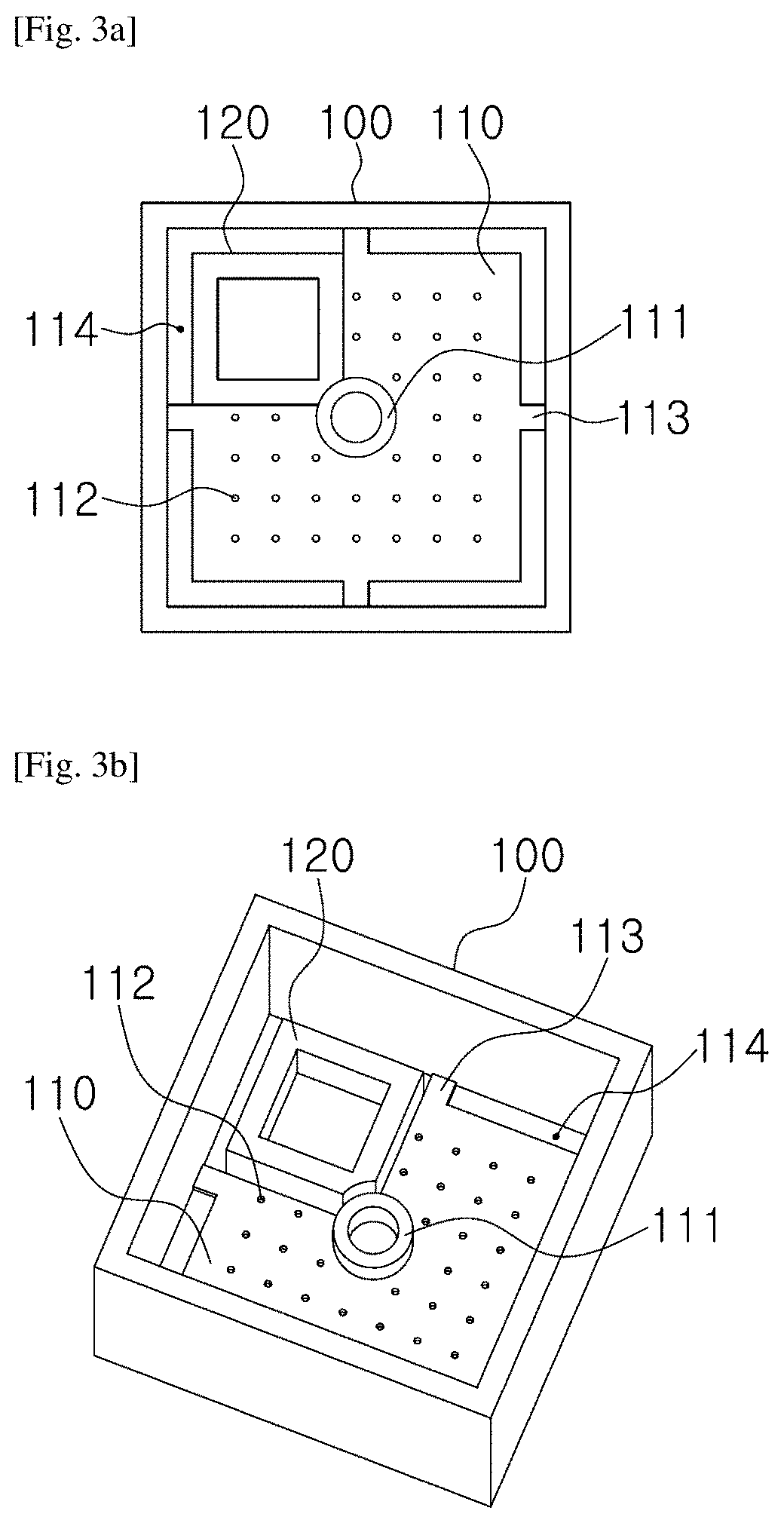Bioactivity testing structure for single cell tracking using gelling agents
a bioactivity testing and gelling agent technology, applied in biomass after-treatment, instruments, apparatus sterilization, etc., can solve the problems of increasing error rate, inability to track single cells, and inability to immobilize single cells of mtb in liquid media, so as to achieve rapid and simple drug susceptibility testing, rapid and simple testing, and accurate results
- Summary
- Abstract
- Description
- Claims
- Application Information
AI Technical Summary
Benefits of technology
Problems solved by technology
Method used
Image
Examples
example 1
nt of DAC System and Verification of DST
1.1. Sample
[0054]Agarose was used as a MTB fixing material. The agarose solution was mixed with a stock solution of TB, which posed a risk of thermal shock if a high-temperature agarose solution was used. To reduce this risk, an agarose concentration of 0.5% was used because this concentration is sufficiently low to prevent solidification at 37° C. Lower concentrations of agarose enhance the diffusion of the culture medium and drug. The drugs used for the DST were purchased from Sigma-Aldrich. The liquid culture medium was Middlebrook 7H9 broth supplemented with 10% OADC.
1.2. Strains
[0055]The standard strains, M. tuberculosis H37Rv, and clinical strains, MDR and XDR-TB, were obtained from the Korean Institute of Tuberculosis. The TB strains were pre-cultured on LJ medium until there were several colonies for a DST process.
1.3. Design and Fabrication of Chip
[0056]For the microscopic tune-lapse imaging of TB, a test chip was necessary to immobil...
example 2
n of the DAC System with Conventional Culture Diagnostic Products
[0088]The usefulness of the DAC system was confirmed by comparing the DAC system of the present invention with conventional TM culture diagnostic methods.
2.1. Comparison of Recovery Rates
[0089]Three divided portions of the same sputum sample were tested in three systems. The results were compared.
[0090]Specifically, tests were conducted on 6 / 25 smear-positive pulmonary tuberculosis patients. In the 25 clinical sputum samples, 3 positive samples were found (positive rate 12.0%). In the three positive samples, one was positive in Ogawa's medium, Middlebrook 7H11 medium, and the DAC system, another was positive in 7H11 medium and the DAC system, and the other was positive in the DAC system. The numbers of negative samples in Ogawa's medium, Middlebrook 7H11 medium, and the DAC system were 23 (negative rate 92.0%), 22 (negative rate 88.0%), and 21 (negative rate 84.0%), respectively. In all methods, one sample was contamin...
example 3
ation of the Presence of Inoculum Effect (IE) in the DAC System
[0126]The present inventors evaluated the antibacterial activities of rifampin, isoniazid, ethambutol, and streptomycin as primary drugs against TB using the DAC system and whether the DAC system was affected by changes in cell density. This system can draw reproducible and reliable MIC values of the drugs irrespective of inoculum size.
3.1. Samples and Growth Conditions
[0127]M. tuberculosis was isolated from a pulmonary tuberculosis patient in the Korean Institute of Tuberculosis (KIT). For a total of 150 clinical strains including 134 pan-susceptible strains and 59 resistant strains, were identified for drug susceptibility using the L-J method before use. All isolates were freshly pre-cultured on L-J medium before use.
[0128]Sputum samples were digested and decontaminated by the N-acetyl-L-cysteine-NaOH method described by Kent and Kubica. The treated samples were cultured in MGIT vials for 42 days. On the day of detecti...
PUM
| Property | Measurement | Unit |
|---|---|---|
| height | aaaaa | aaaaa |
| size | aaaaa | aaaaa |
| height | aaaaa | aaaaa |
Abstract
Description
Claims
Application Information
 Login to View More
Login to View More - R&D
- Intellectual Property
- Life Sciences
- Materials
- Tech Scout
- Unparalleled Data Quality
- Higher Quality Content
- 60% Fewer Hallucinations
Browse by: Latest US Patents, China's latest patents, Technical Efficacy Thesaurus, Application Domain, Technology Topic, Popular Technical Reports.
© 2025 PatSnap. All rights reserved.Legal|Privacy policy|Modern Slavery Act Transparency Statement|Sitemap|About US| Contact US: help@patsnap.com



